The Miracle of Suffering
This is the Miracle of the Mundane’s 150th post.
That means I’ve redefined the ordinary 150 times. So many times that the word to enumerate the occasion—sesquicentennial—contains six syllables and requires a phonetic breakdown to pronounce: se-skwi-sen-ˈte-nē-əl. I’m proud of that, not pronouncing the word, but publishing a book length of blog posts that emphasize the ordinary. It hasn’t been easy, but I’ve never ran out of content. At least once a week, the blunt force of life falls on my foot and wakes me up.
This anniversary post coincided with my discovery of another way to describe what the miracle of the mundane is.
My friend and fellow writer Douglas Thompson gave me the book Jacob the Baker by Noah Benshea. It’s a quick read and electrifying in wisdom. The baker told a patron, “A miracle is often the willingness to see the common in an uncommon way.” This has been my experience. My joy is not in washing the dishes, but appreciating that I demonstrate my love in service to my family. My role isn’t teaching books, but opening young minds to see past the veil of their limited experiences. My writing isn’t a means to a career, but my humbled participation in the divine act of creation.
It’s not so much the mundane, but what we infuse the mundane with that makes it rise out of the pit of drudgery.
The morning after I finished Jacob the Baker, I began Holocaust survivor Viktor Frankl’s Man’s Search for Meaning. I was supposed to only read the first eighteen pages because I was substitute teaching for a colleague who assigned that page range for homework—a colleague who approaches reading with reverence.
I started reading the book before noon. By ten o’clock that night, I had finished it, including the postscript and afterword. I couldn’t put it down, except for when I had to make a peanut butter sandwich or change a diaper.
I had read the book eight years ago, but it felt like I had read it yesterday. I was shocked at how familiar it was. I had forgotten that this book forever changed my life in early recovery until I revisited these words: “It did not really matter what we expected from life, but rather what life expected from us. We needed to stop asking about the meaning of life, and instead to think of ourselves as those who were questioned by life—daily and hourly.” I had to put the book down for an hour because I can’t summarize my experience in recovery any better than that. The thought needed time to settle in.
When I’m able to think and act according to what life expects of me rather than what I expect of life, I am happy. It is a paradox: truth rests in what is needed of me, not wanted by me. It explains why I teach, why I write, why I serve as a husband and father. And what’s more, it explains why I am, some of the time, really fucking happy.
Some of the time.
Sometimes.
Definitely not all the time.
The real joy, the jubilee, the miracle comes just frequently enough to inform me it will never leave without allowing me to retire on it.
Call it some interval that ranges between seldom and rare.
It eludes me more often than not.
In fact, I was having a tough week until I picked up Frankl’s book.
After setting it down, I sat next to my wife who was watching the kids play in the front yard.
After a minute, she said, “It’s good to have you back.”
“What do you mean?” I said.
“This is the first I’ve seen you still in a while.”
It’s like that, isn’t it? The vicissitudes of existence. The push and pull of the restless soul. I don’t vacation on vacation. I don’t rest when I’m idle. And I always pay the price, eventually.
I took a breath, unable to remember the last time I wasn’t keeping myself busy with this idea or that chore.
My son was playing with the Maui hook I made him—a close hanger stuck into the cardboard cylinder of an empty paper towel roll. He hopped around the yard singing, “I see what’s happening here. You’re face to face with greatness and it’s strange.”
My daughter was acting on her latest fad, adding a “nah-nah nah-nah nah-nah Batman!” to everything she says. It usually goes something like this:
“Can you brush your teeth, hon?”
“Yeah, me brush my teeth. Nah-nah nah-nah nah-nah Batman!”
My wife leaned her head on my shoulder. All was still. It was as if life asked me to sit the hell down for a minute and see its majesty teething in the play of my children and the caress of my wife.
Frankl lists suffering as one of the three main sources of meaning in life.
Not achievement, not wealth, not fame, not influence. Suffering. It may be the one thing we all do most often but never admit to doing at all. The western world has a way of shaming it. Suffering is not acceptable, not when you have a first word of resources at your beckon. Society perceives suffering as a weakness, a defect.
But society is illogical.
One minute it makes you think that suffering is not allowed, the next it tells you that the nine-to-five, save-for-retirement life is insufferable. It tells you the meaning of life is the glitz and glamour, the empty prosperity, the vacuous notoriety—the things that only lead us back into our persistent emptiness without any permission to suffer for it.
Fuck that.
You don’t need permission. We all suffer. It is all right. It is OK. In fact, it is good.
If Vicktor Frankl can find purpose in his life at Auschwitz, nothing is insufferable.
If I never learned to accept my suffering as a gift, dishwashing would be a chore, teaching a job, and writing a hobby. Why deny ourselves that gift?
We are pressured to have it all figured out.
We don’t and we never can.
If we ever did, there’d be no room left for miracles.

 Previous Post
Previous Post Next Post
Next Post
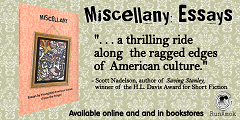
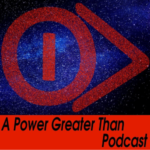

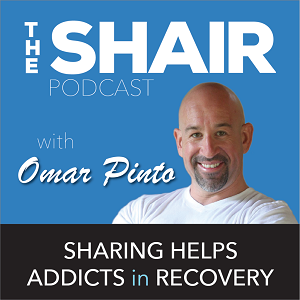
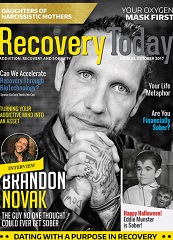
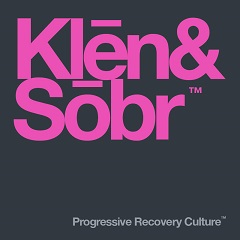






Thank you, Mark. I couldn’t agree more. The little inconveniences are often for me, eye openers to marvel at the beauty of them, and the opportunity to be even more grateful.
Thank you Jeff for stopping by and letting me know you could relate! It’s a great comfort to know we share these eye opener moments.
This is beautiful, Mark.
“We don’t and we never can…there’d be no room left for miracles.” – Message of the century.
Thank you. I wish you all the best in your continued writing and living life to the fullest. 🙂
Wow-message of the century? That’s high praise. Thank you. Maybe I should expand on that notion a bit more.
Wishing you the best as well, Melanie! Thank you so much for stopping by and leaving a word.
?beautiful. It is the little moments. I agree completely.
Anne
When my brother died last year his therapist told me that he had given him Frankl’s book and suggested I read it too. I bought it but never read it…of course I will get it out now and read it. There can be true and authentic beauty in suffering inside of our spirits, if we can embrace the process….I believe this wholly. Painful….absolutely. Freeing….absolutely. Thank you Mark for this. A very substantial read.
Thanks Annette –
I’m eager to hear your thoughts on the book when you get to it. Please let me know!
Mark
Congratulations on your 150th post! It takes love, passion, and dedication to not miss a post. Thanks for keeping your blog going! You share many nuggets of wisdom. Bravo from another fellow teacher!
I appreciate the congratulatory note, Mary!
I’ll keep it going. For now, at least. one post at a time, as they say. Your encouragement goes a long way in making it happen, so, thank you!
When I was in 11th grade, we studied Man’s Search for Meaning for almost the entire year in our Religion class. The other text was Night by Elie Wiesel. I learned so much from that class and the Nietzsche quote, “He who has a why to live can bear with almost any how.” still resonates today like it did when I was just 16 and struggling with coming to age while so many people in my family died. Excellent post, my friend.
I’m glad it hit you at a meaningful time.
I read Night in high school, but never Frankl. First time I read him was when I was new in sobriety and someone told me to read it. But I had a similar transformation effect. You had a lot to deal with then, Damien. I’m glad this book provided some solace. That must have been tough.
Congratulations on #150. I especially love this one. I have been brought closer to Him and witnessed His amazing hand in my life (and others) through my trials and suffering. After all, who needs old God when the sailing is smooth? My meditation this morning was written by an anonymous Carthusian monk and the first words were: “Every great grief conceals a great grace.” Thanks for continuing the lesson.
What a great addendum to this post. Thank you for sharing it, Elizabeth!
My faith, too, has been a journey of struggle and redemption. I’m glad you found this one, in particular, enjoyable. I got a lot out of writing it, I know that.
150 …
Why does it seem like so much more? You are overflowing with eloquence. As a student of “A Course in Miracles” I see suffering much the same way; an opportunity to shift my perception of what is—rather than—what I want it to be. Thank you for being a bright light in my life. Lisa
Lisa! Thank you for stopping by. It’s great to hear from you.
It does feel like more to me too. Although, when I think about the words, time, and effort, it is a lot.
I hope you’re doing well.
This is brilliant Mark, seriously good!
Hi Mark,
Most of my suffering is because of me. When things don’t go my way I usually have a problem with it.
Or like you I can’t sit still until my wife let me know it’s okay not to do anything.
And it’s okay to just…BE.
When I live in my truth and allow life to flow the way it wants to, I’m at peace with myself and the world.
Really that’s all I want is a peace of mind and heart.
Great post!
Thanks Vernon! It’s really good to hear from you. I’m at a place where I agree. That most of my suffering is self-brought on. I guess I’m realizing that even when it is, it has meaning. I’m ahead over to your site and catch up with what’s been going on with you today!
Needed to read this tonight. I fear my suffering so much. I always can use reminders, which you’ve done for me . . . again. Love your writing, man. – Danno
Thanks Dan. Your friendship is invaluable to me. Hope we can catch up soon!